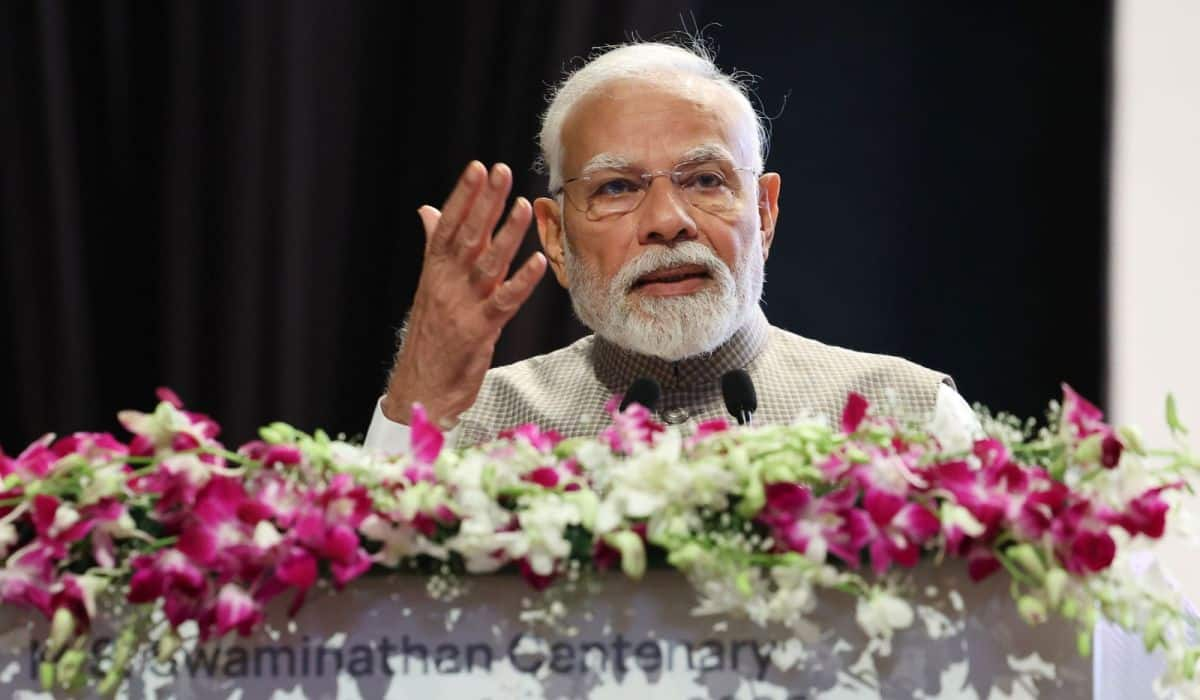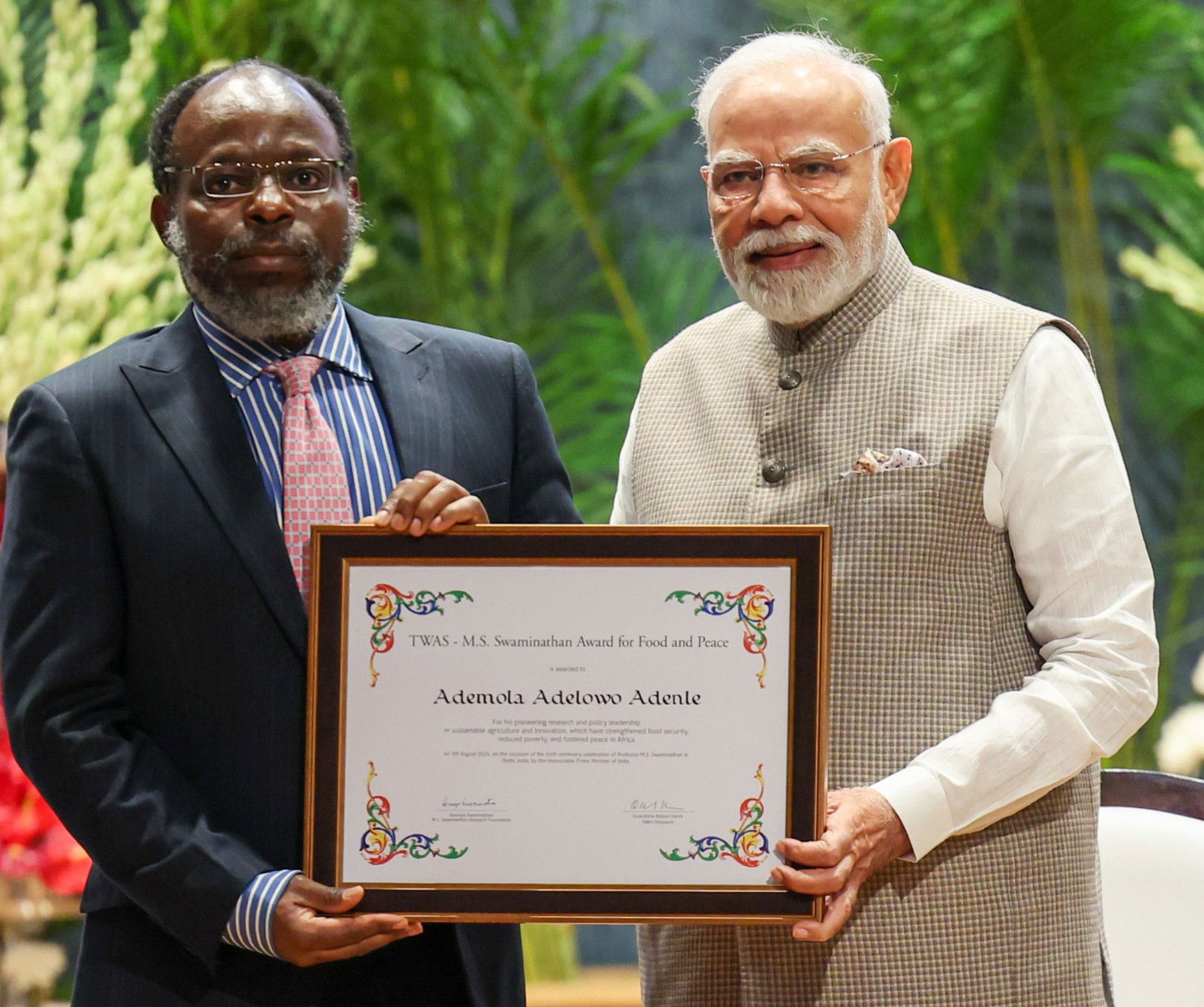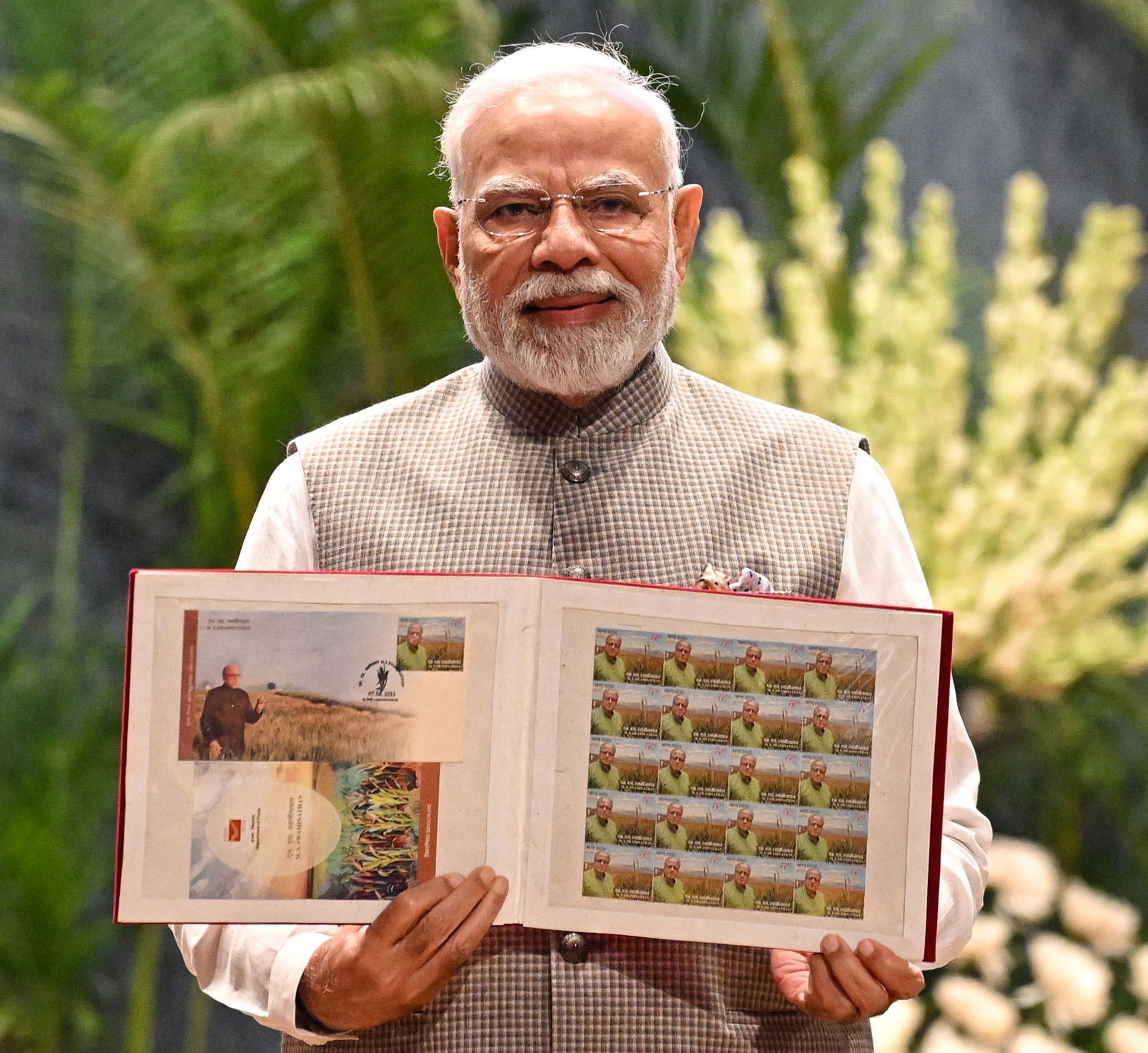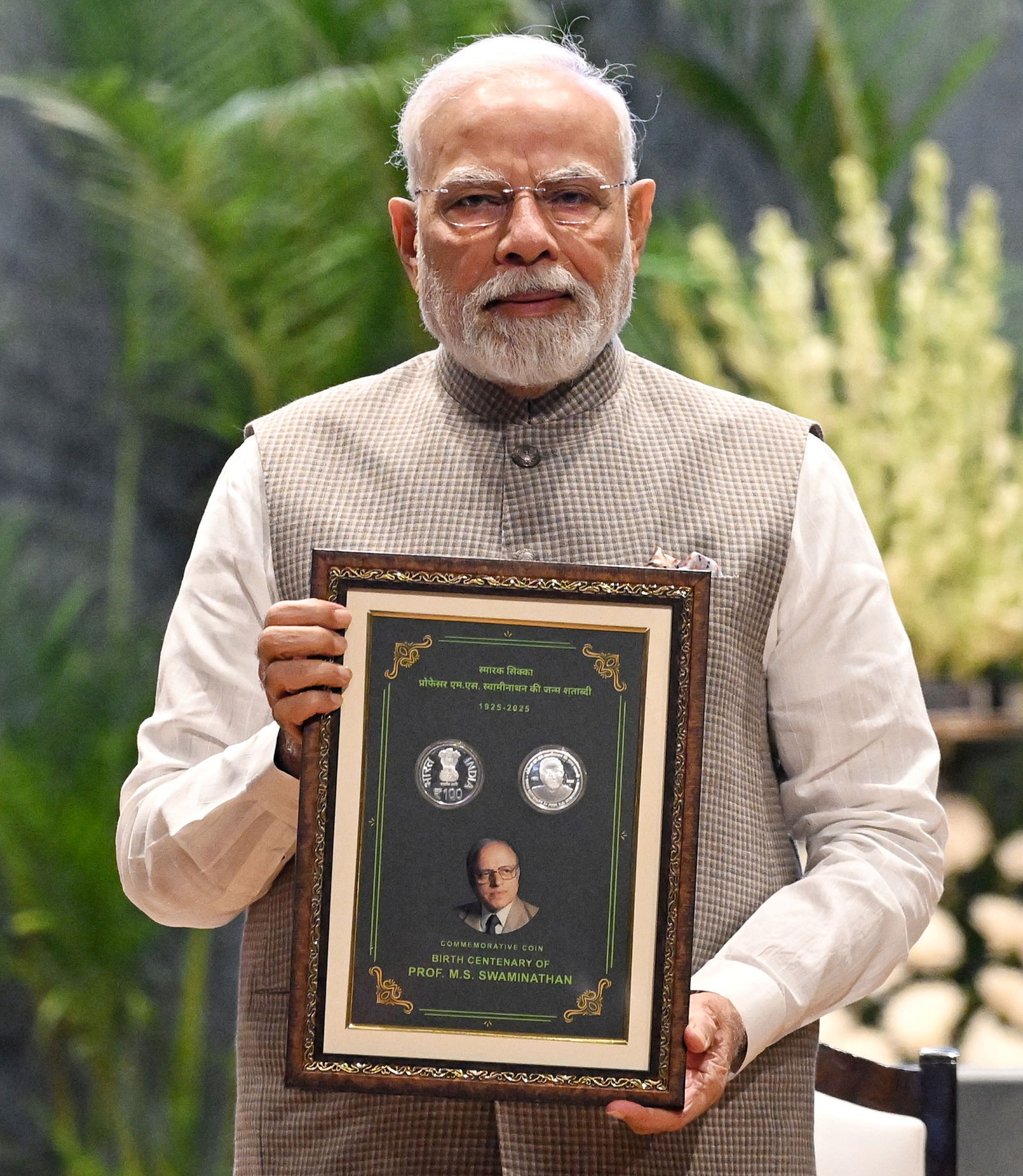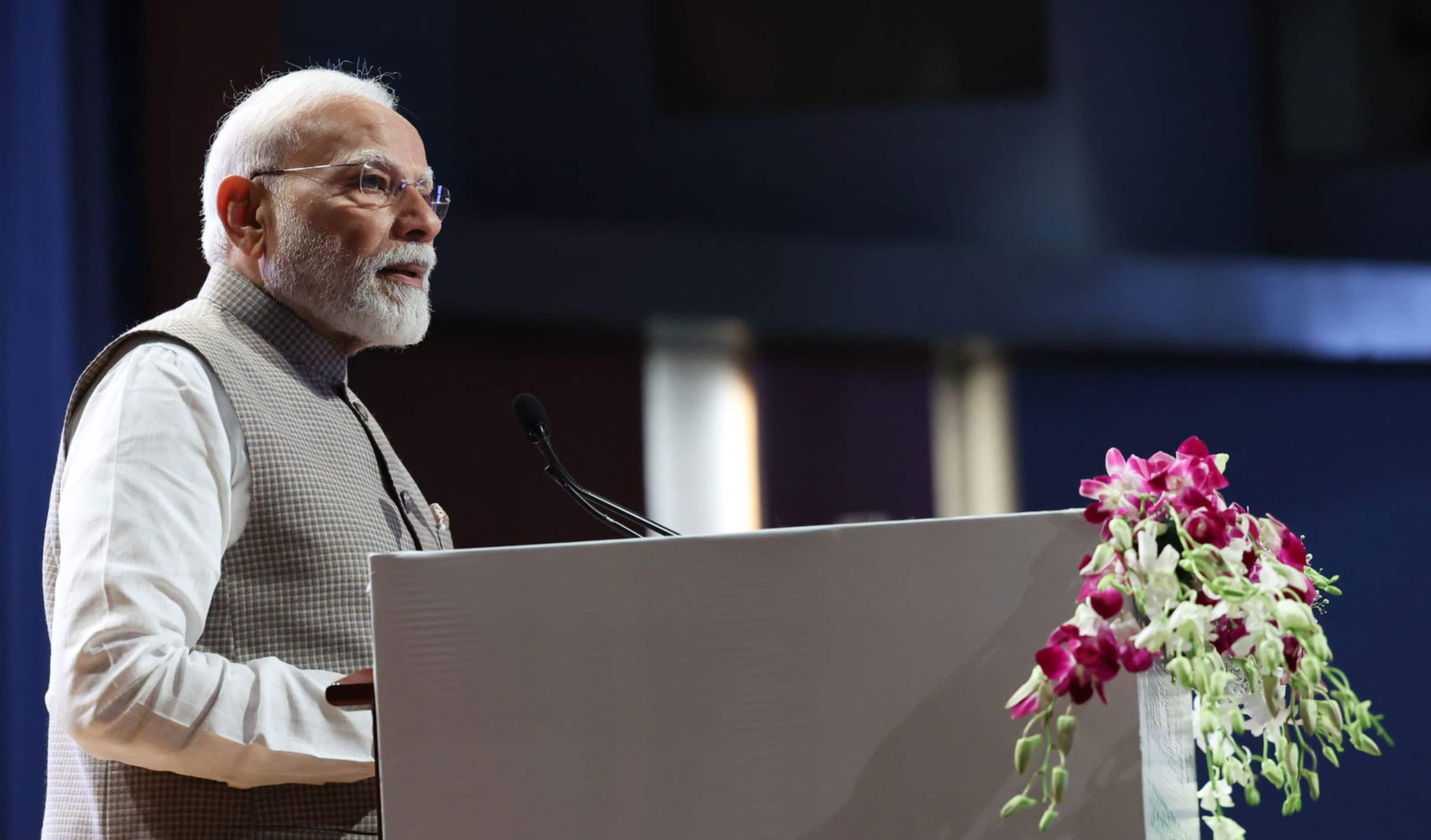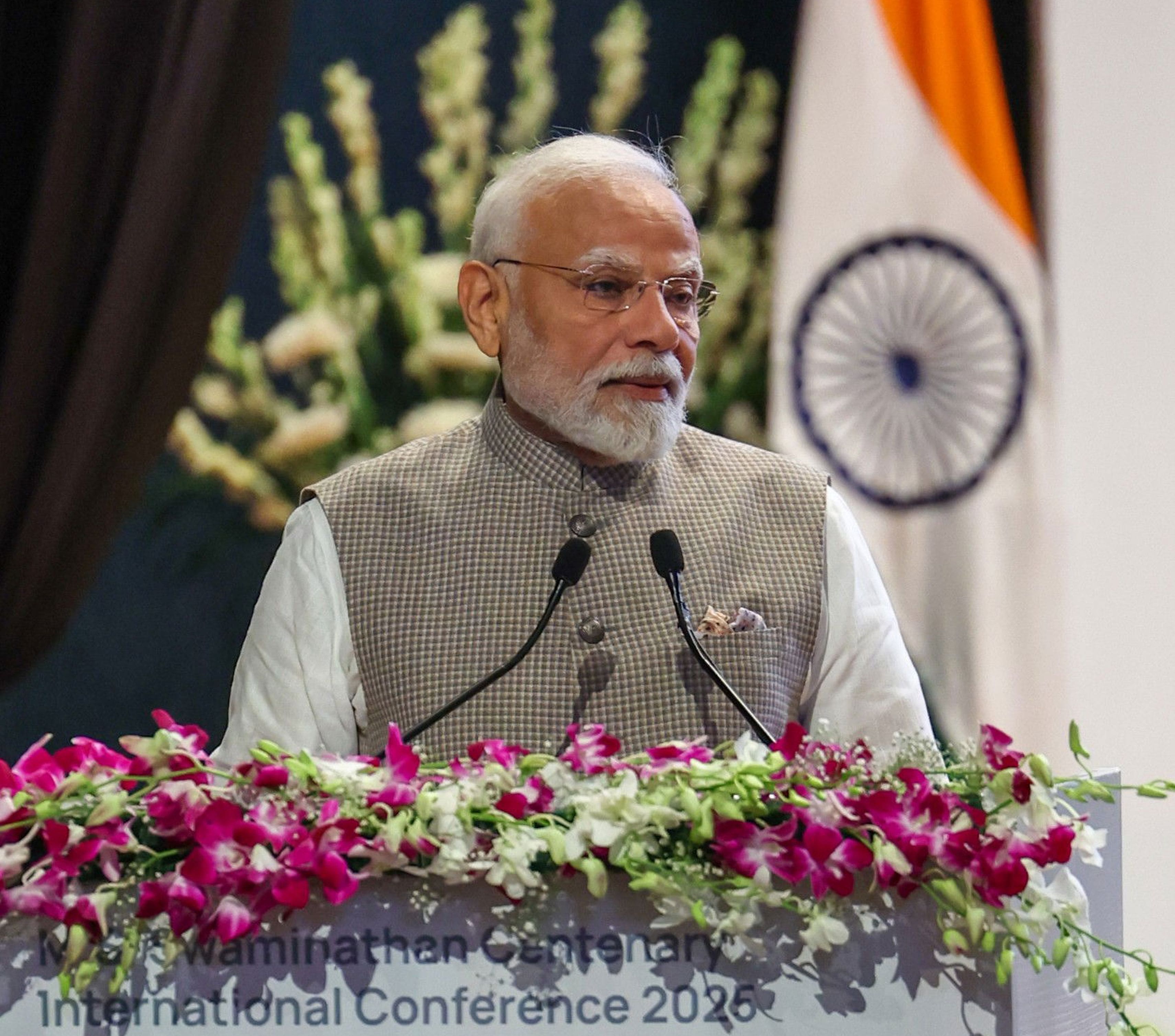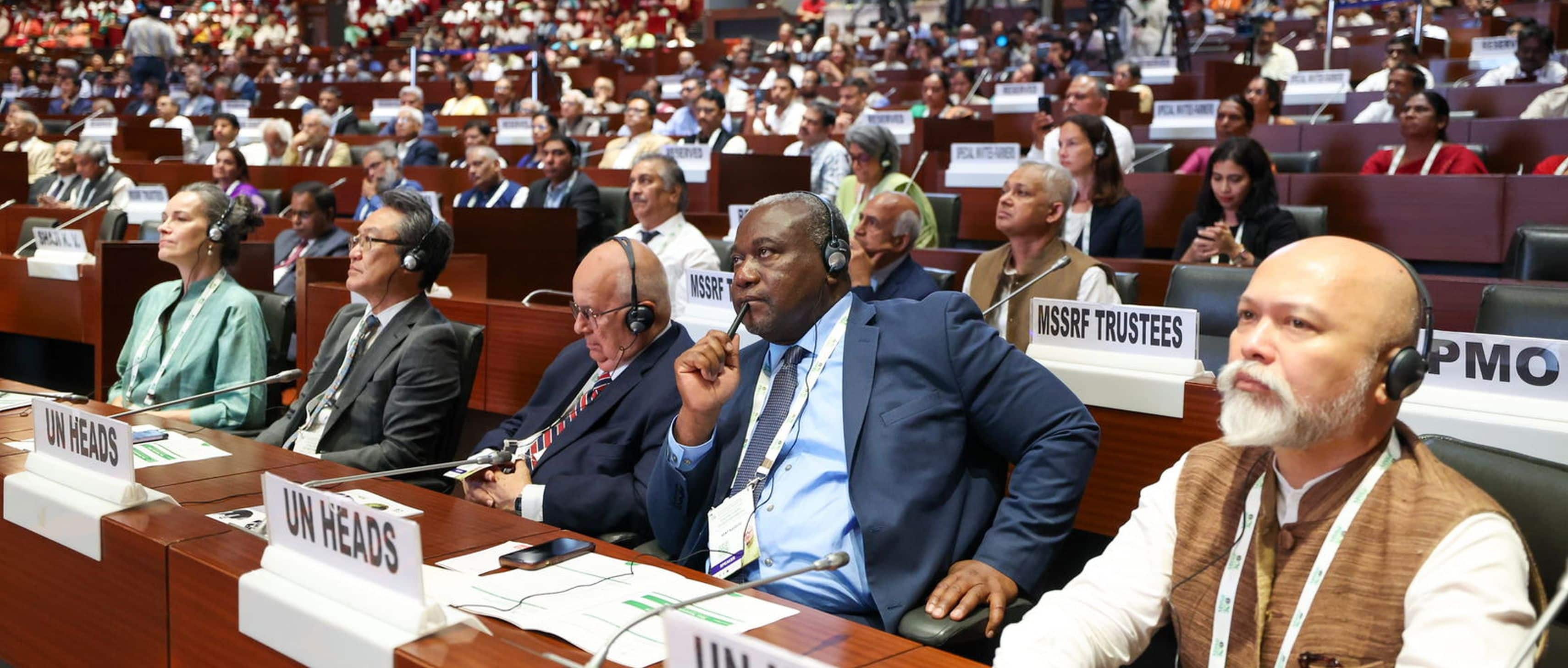Mother India! Victory to thee!
Mother India! Victory to thee!
Mother India! Victory to thee!
All the respected people who are present here today in large numbers!
I am fortunate that I have been invited to be present amidst you all on this auspicious occasion and have been able to seek your blessings.
It is a tough task for the people around the world to fathom our culture, religion and tradition. This is because we do not have one religious book or one god or a single worship system. We are diverse and therefore, it is difficult for them to figure out what we are! That is our specialty. We are such people where different devotees worship different gods and goddesses. If the devotee is a wrestler then he worships Hanuman; if the devotee wants education, he worships Goddess Saraswati; if the devotee deals with wealth, he has Goddess Laxmi. This is our characteristic. In this society, the community that has been providing food grains is the farmer community, the Leuva Patel Samaj in Kathiawad. And they worship goddess Annapurna.
'Like devotee like God' has been our special characteristic. Therefore, as a part of this feature a pilgrimage place for goddess Annapurna has been dedicated today. But we can be happy about one special feature of our country. If you just consider Gujarat, and start moving in any direction for 20, 25 or 30 km, you will find a place to sit and have a meal. There will be such arrangements. If you go 20-30 km in any direction, you will find some or the other temple, math or a saint or a sage. In every corner of India, there is a tradition of not letting go a guest empty stomach. So, arrangements are made for their stay and food. It is an age-old tradition. Those who have done 'Narmada Parikrama' know that. The villages at the bank of Narmada are the same. The people are the same. The people visiting the place are new. There are people residing at the banks of river Narmada. The people who take part in ‘Narmada Parikrama' do not have to go hungry. The people of that village serve the guests or the visitors. This is the specialty of our country. This is the tradition. Our society is a philanthropic society and because of this, the spirit of service is inherent in the root of a cultural consciousness.
Here, it is said – Serving people is akin to serving god! The construction of the Maa Annapurna Dhaam as well the hostel facility for imparting education and values to the future generations are a reflection of this core spirit. We want to provide better hostel facilities and other facilities to the children from the backward families so that they get better opportunities to progress. So you all have dove-tailed the tradition of education with our cultural heritage. I congratulate Narhari Bhai and his entire team and those who have donated for this cause.
There is a tradition in our country wherein everything is expected out of the government and when something is not done, questions are raised to which the government is answerable. This system never existed before. There was no such tradition. Dharamshalas and Gaushalas used to be built; places for drinking water were built. The Adalaj Vav or step-well was also built. All these projects were not done by the government. These things are carried out by the society. Dharamshalas, drinking water dispensers and libraries are built by the society.
Gradually the power of the society was suppressed and the power of the government was made paramount. We want that the state should perform its work while the society will grow more powerful. Stronger the society, stronger will be the nation. The governments are not required to muster power. We encourage and duly promote all such trends from that original tradition. And there is no manipulation in it. It is not the state religion; it is the real power of the society. That is the effort to strengthen that fundamental power. There is no political shrewdness in it. This is the core strength of the society. This is an effort to emphasize upon the society's core strength.
Today, on the occasion of Consecration ceremony of Mother Annapurna at Annapurna Dhaam, we can think of a new direction for the society. Prasad is distributed in every temple but we can modify the tradition of distributing Prasad in Annapurna Dhaam to suit the present time. As this society connects with Mother Earth, therefore, I request the management to give a small plant each to the devotees as Prasad. And the devotees should be asked to grow the plant in their homes. Throughout the life Mother Annapurna's Prasad will be there in their courtyard or in a corner of their fields. They will always protect this Prasad of Mother Annapurna.
In this manner, the environment will be protected or not? Thus, many roles will be played by the plant – as a Prasad, as service to humanity and lifting the life. We can do another thing. In Leuva Patel Samaj, whenever a daughter is born, the daughter should be taken to Mother Annapurna's Dhaam to seek Mother Annapurna's blessings. They should be given 5 plants. And those plants should produce timber. If possible, after discussing with the government, this Trust should ask for 100-200 acres of fallow land and that family can sow those 5 plants for timber. When that daughter becomes 20 year old, the timber produced from those plants can be sold in the market. The amount received from the sale of the timber will be given to the daughter. The daughter can merrily get married with the help of that money. Will her parents have to take loan? The government will be providing land so that the families can sow the plants. You make the arrangements and the entire land will turn into greenery.
Today we have to import timber worth thousands of crores of rupees from abroad. Let the daughters grow up along with the timber plants. The import of timber can be stopped. We can relate religious traditions to economic system in a modern way. I feel this place can work in this manner. I feel giving a casteist colour to everything is a sin. If someone tries to paint Sardar Vallabh Bhai Patel in the colour of caste, then it is wrong. He was such a great leader of our nation! The world looks up to the Statue of Unity. Whenever the world will talk about the world's tallest statue, they will have to mention Sardar Patel. And I feel, nobody can break this record in the near future.
I want to tell another thing. Who was behind the birth of Amul Dairy? Who had started it? I have said before that it is a sin to give casteist colours to anything. But Leuva Patel community understood all these things. Amul Dairy had started and in the beginning the people who pioneered it were from Leuva Patel community. Nobody ever thought that Leuva Patel community could be behind the success of Amul Dairy. Many congratulations to them. But I have mentioned this story for another reason. Just as 5-15 people from a community have established Amul with a far-fetched vision, which is benefitting the animal rearers, and the people of every community, village as well as the entire Gujarat; similarly, those associated with Mother Annapurna can take up the responsibility of working directly for the farmers. I want the people of this Trust to develop a system in terms of Food Processing based on scientific lines, taking inspiration from Annapurna Dhaam so that our farmers can have value addition to their crops, just like Amul was developed getting inspired by Sardar Saheb.
The famous chillies of Shertha can bring more income if it is brighter in colour and if the chillies are turned into powder. If the powder is contained in attractive packets, it will further increase its value. There is an immense possibility. Value addition through food processing! Whatever is produced by the farmers, they should get the benefits of a food processing unit. This work should go on at a large scale. There should be research. I believe that with the blessings of Mother Annapurna we can develop such a scenario here.
So I hope that the friends from the industrial world will definitely think in this direction - as to how spirituality and religion can be used for the development of society. And I was told that the Annapurna Dhaam was built keeping the five elements (Panch-tatva) at the centre. There is a couplet (doha) in Ramcharitmanas -
छिति जल पावन गगन समीरा। पंच रचित अति अधम शरीरा।।
That is, our body is made up of the five elements. With this spirit, as efforts are being made to assimilate the essence of these five elements, I believe that keeping in mind the future of the society, we will brighten it with the basic elements.
Narhari Bhai is very confident that by 2020, it will be inaugurated and the foundation stone will be laid for the second one. And if you are confident, I am one and a half times more confident regarding this. And if someone asks to come home, who will refuse? Am I a guest? This is the joy of coming home. What could be the greater fortune than getting to dedicate oneself to Mother Annapurna's feet and fulfilling the nation's food-grain needs? Today I am present among the mighty farmers, among those who turn grains into gold. Both 'Jai Jawan and Jai Kisan' have immense value. The power of the farmers and of the soldiers provides food security as well as border security to the country. And with their power, the country always successfully avails the opportunities of development. Once again I thank you all for giving me the opportunity to be present with you all. I submit myself to the feet of Mother Annapurna and pray for your brighter future. With that, I end my speech.
Thank you!













